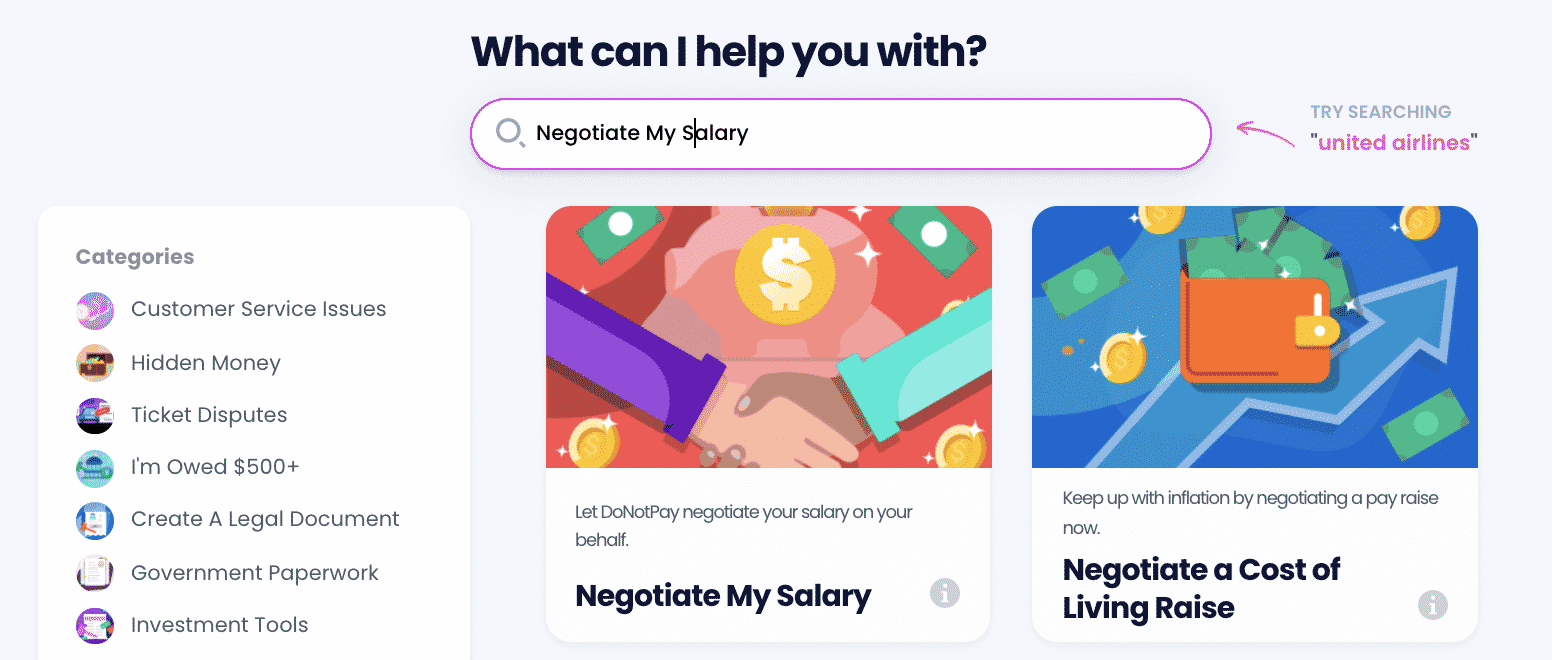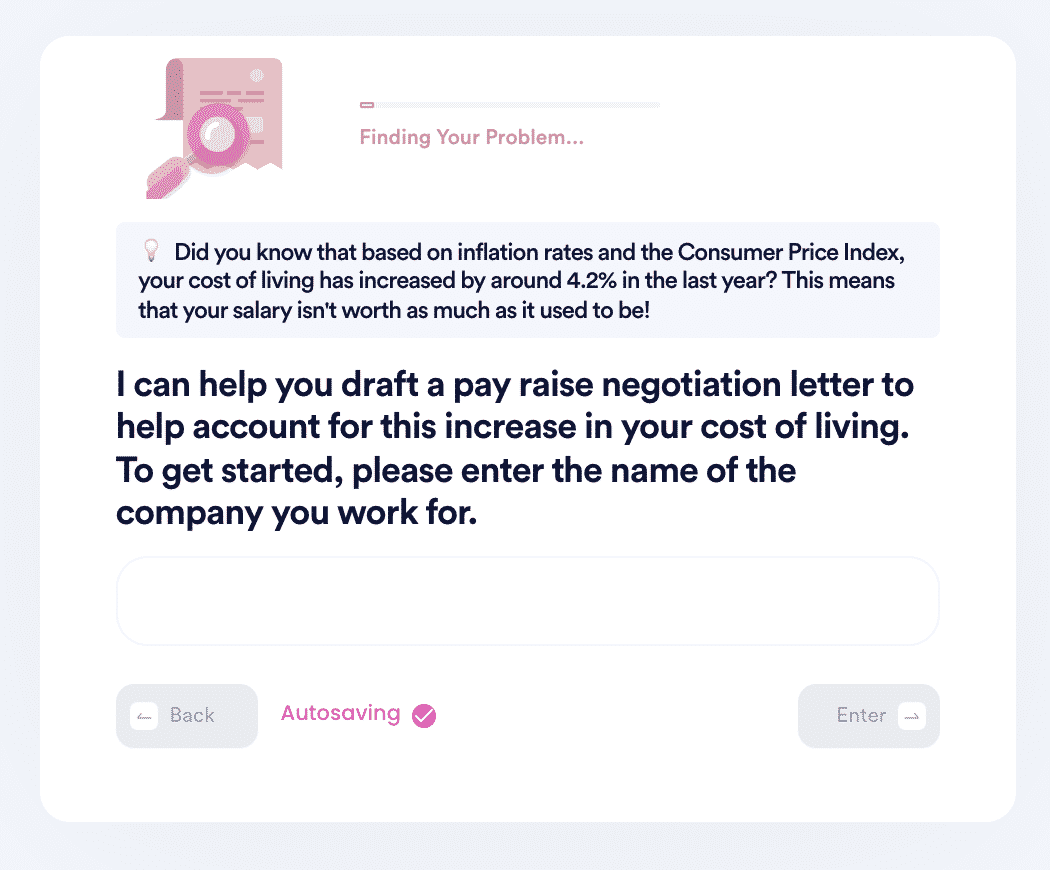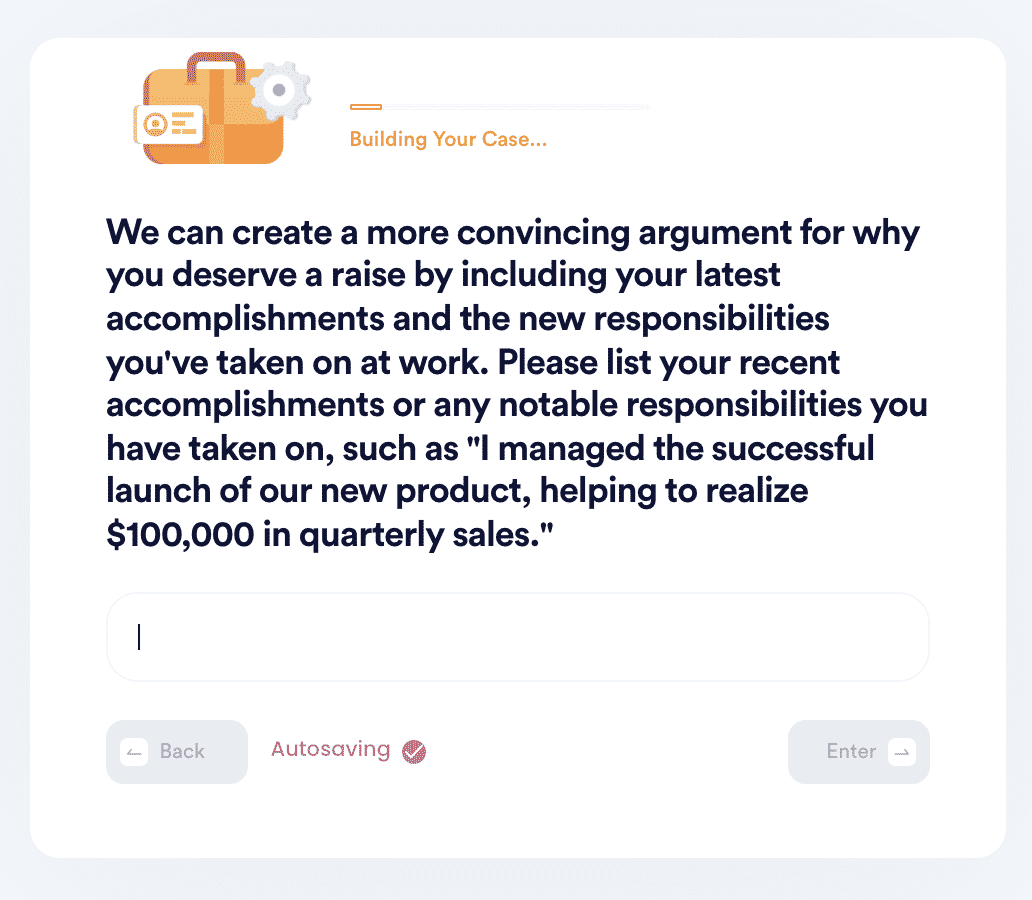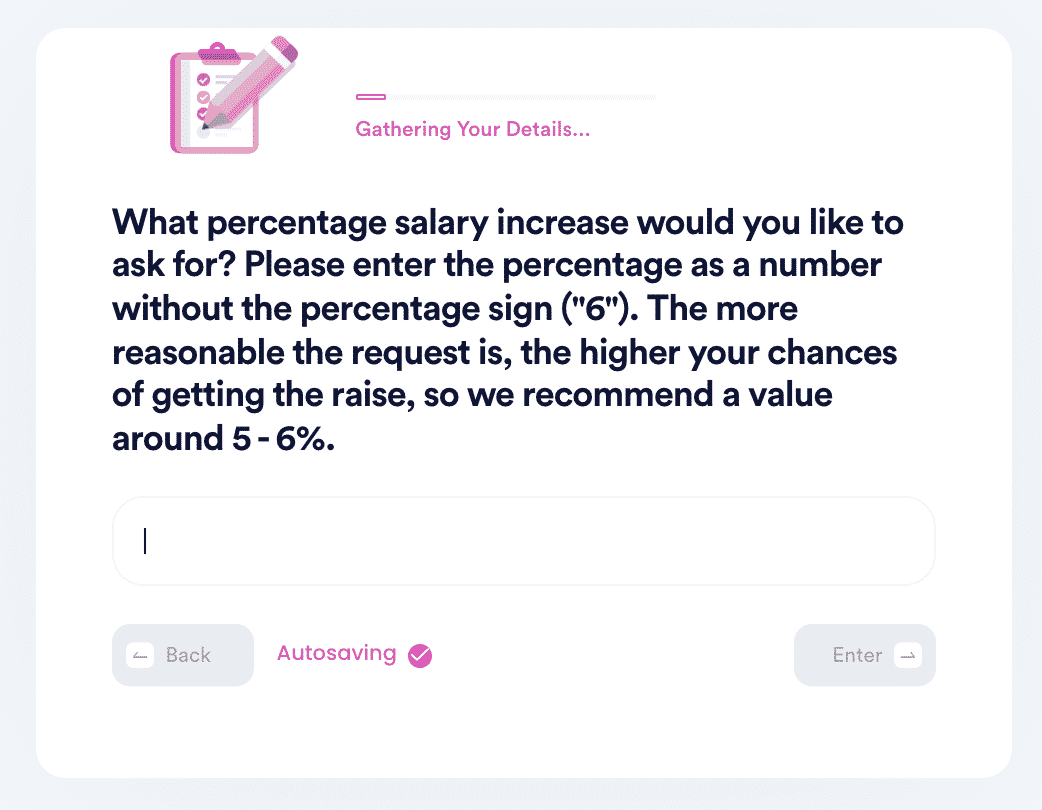How to Use a New Job Offer to Get a Raise
In the age of The Great Resignation, The Great Reshuffle, the ZoomTown Spread, and everything else going on in our world, we all want some good news. That good news could be knowing how to use a job offer to get a raise. Negotiating a pay raise can result in great success or in total failure. Knowing how to ask for a raise at any time can be difficult. To succeed, you should learn when to ask for a raise even if you don't have a new job offer. You should also learn how much of a raise you should ask for. Salaried employees should learn about negotiating a higher salary.
Whatever the reason for wanting to learn how to get a raise, you want to be successful, and that includes knowing how often you should get a raise. Get it wrong, and you could offend your boss, upset colleagues, and get stuck in a corner. The result of getting it wrong is you hurt your future, whether you take that new job or not. DoNotPay shows you the steps to take so you do .
How You Use a Job Offer to Get a Raise
is a delicate process. Get it right, and you get your raise and may also improve your professional brand. Being valued and paid more is your goal. You may have applied for a new job you saw advertised, you may have been headhunted, been successful as a networker, or a friend who works elsewhere may have told you about a new job opportunity. Before you speak with your current manager, you have some decisions to make.
Ask Yourself These Questions
- Do I actually want that new job?
- Will I take that new job if I do not get the pay raise I want?
- Will I stay in my present job if I do get the pay raise I ask for?
- Will I stay in my present job if I do not get the pay raise I ask for?
- Who could I upset if I negotiated badly?
- How good a negotiator am I?
The reason for asking yourself these questions is so you can prepare properly and, if necessary, you can practice your conversations before you meet. DoNotPay is here to guide you and to help you succeed.
Prepare Well
You prepare in two ways. Have the facts you need at your fingertips, and be clear about how you benefit your current employer. Follow these steps to succeed:
- Review your new job offer and list the reasons they want to employ you.
- List the pay, the benefits, the future promotion possibilities, etc., that will come with the new job offer.
- Describe to yourself how you benefit your current employer.
- Link the contributions you are making to your current employer to your new job offer's pay and benefits.
- Decide how you can discuss these things without having to either exaggerate or generalize. Detailed facts are essential in pay raise negotiations.
- Have a copy of your job offer to show to your manager.
Decide How You Will Approach the Negotiation
Learning how to negotiate your salary is critical, but so is how you actually approach your manager, to begin with. If you work remotely, or your manager is based in a different office, you may need to send a salary negotiation email or negotiate your salary over the phone, or you may just want to arrange your face-to-face meeting with what people call an ask for a raise email.
Getting Your Pay Raise Negotiation Meeting Right
Once you have arranged the negotiation meeting, it is a good idea to practice what you will say and how you will say it, so:
- Have all your facts on paper and in your head.
- Remind yourself to stay calm, polite, and confident.
- Show your manager the job offer letter.
- Give them enough time to read it, take it in, and think about what the offer includes.
- Begin by saying you have always valued working here and how much you value the previous opportunities you have had, your fellow team members, etc. Do this to set a positive scene and to show you would like to stay - but.
- Say you know how much the company values you, but you need the new salary and benefits package to pay for (give examples of why you need the extra pay.)
- Say you will be sorry to go, but you need the future opportunities at the new company because of the career path, the future pay raises that come with possible promotions, etc.
- After you have set the scene - show the job offer letter, explain how you have contributed to the company, compare what the company pays to what the new company has offered, let your manager speak for as long and in as much detail as they want.
- Listen and take notes. You want your manager to have time to think about what you are worth and what they can do to keep you.
The ball is now in your manager's court. Your manager must now make a decision. That decision will be to:
| Let you go | Because the company cannot compete with the job offer. |
| Ask for time | To think about what the company can do to keep you. |
| Agree to speak | With HR to see what they can offer to make your stay. |
If Using Your Job Offer to Get a Pay Raise Seems Too Difficult
Not everyone is a skilled negotiator. Not everyone can prepare in enough detail or is good at discussing important issues such as "pay raise or quit" with their manager. Even if you are confident and experienced in negotiations, having a powerful support mechanism makes a lot of sense. This is where DoNotPay comes in.
DoNotPay can handle a lot of the background research and can give you the facts and figures you will need to have a meeting with your manager. Knowing you have the background which relates directly to your line of business, company, and job description will give you the confidence you need to prepare for and have a successful pay raise or new job meeting. All you have to do is
- Search for 'Negotiate My Salary' on DoNotPay.

- Fill in your company's name and the industry you're in for us to compile wage statistics in your field.

- Write your achievements and qualifications.

- Enter your preferred base salary.

Enter your details, answer the questions, and DoNotPay will provide the data you need in letter form. You can use it to prepare for your meeting, or send it with your job offer letter to your manager, and ask to meet.
What Else Can DoNotPay Do For You?
DoNotPay is an expert at solving problems of all kinds and in helping people with all kinds of problems. We mentioned earlier that you might want that pay raise for a number of reasons.
- Even before you get your pay raise, DoNotPay can help you learn ways to lower your property taxes.
- Another money-saving solution by DoNotPay is showing you how to cancel unwanted subscriptions and free trials.
- A clever way to increase your current pay is knowing how to manage chargebacks and get refunds that you are due.
One reason people want to leave one job and go elsewhere is because of an unhappy work environment. Whether you take that new job or stay because you get your pay raise, you may want to learn how to fight workplace discrimination. DoNotPay has you covered there, too.


